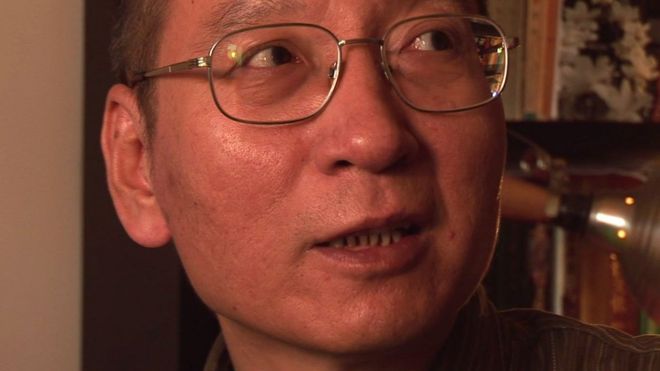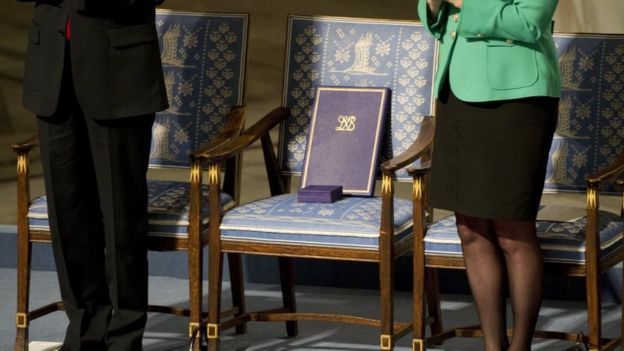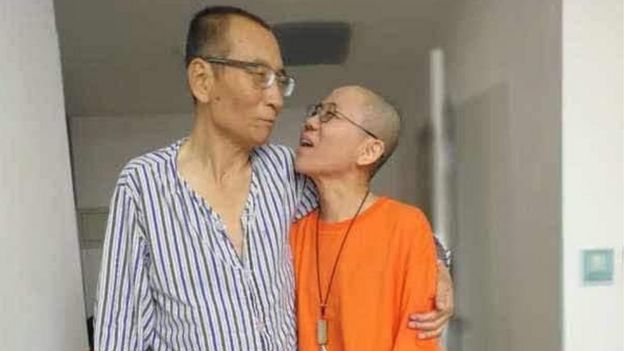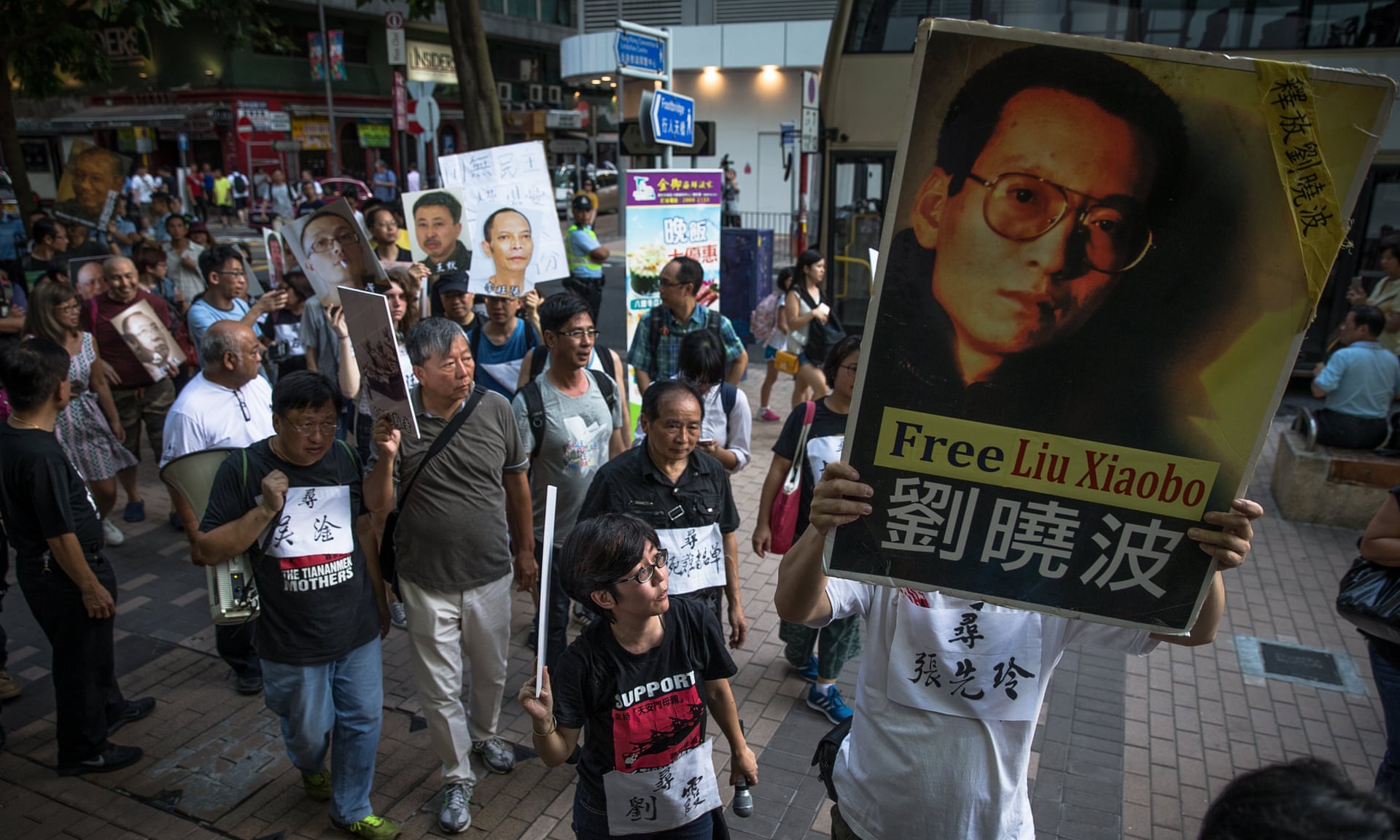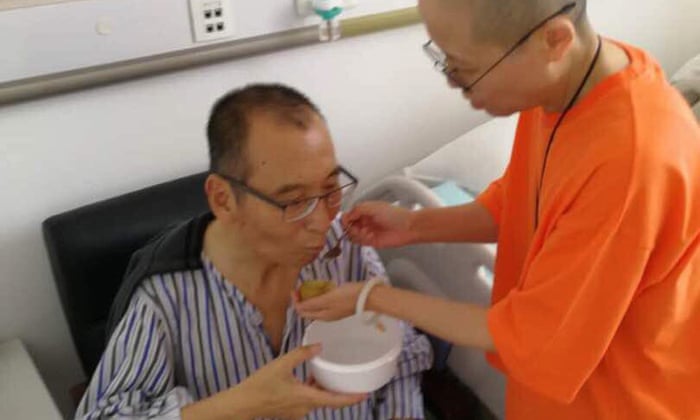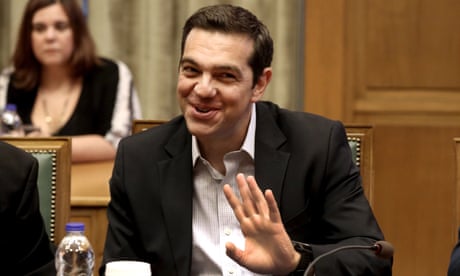By BARI WEISS

Leaders of the “Umbrella Movement” Nathan Law, left, and Joshua Wong, center, at a rally in Hong Kong on Wednesday.
Here’s a suggestion for the Nobel Peace Prize Committee, which opens its nominating season next month: Look to the three young men who earlier today became Hong Kong’s first prisoners of conscience.
In 2014, the courageous trio helped lead what become known as the Umbrella Movement — an enormous political protest defending Hong Kong’s freedoms from an increasingly aggressive Beijing. Like Andrei Sakharov, Vaclav Havel, Aung San Suu Kyi and so many dissidents that came before them, the men were hit with a bogus charge (“unlawful assembly”), were found guilty and served out their punishments last year.
But today, Hong Kong’s Department of Justice decided that those penalties were too lenient.
Joshua Wong, who burst onto the city’s political scene at 14 years old and is the public face of its democracy movement, was sentenced to six months.
Nathan Law and Alex Chow were sentenced to seven and eight months, respectively.
All three had budding political careers, but these new sentences bar them from running for public office for the next five years.
As Mr. Wong put it to a reporter from The New York Times before his sentencing: “The government wanted to stop us from running in elections and directly suppress our movement.”
As Mr. Wong put it to a reporter from The New York Times before his sentencing: “The government wanted to stop us from running in elections and directly suppress our movement.”
He added: “There’s no longer rule of law in Hong Kong. It’s rule by law.”
Just so.
The implications of their imprisonment are monumental.
The implications of their imprisonment are monumental.
Since Britain handed over jurisdiction of its former colony to China 20 years ago, the city has operated under the notion of “one country, two systems.”
That increasingly appears to be an empty slogan.
“The outcome isn’t just a travesty for these three peaceful pro-democracy activists or free speech — it’s also a painfully clear sign that Beijing’s political dictates are eating away at Hong Kong’s judiciary, an institution essential to the territory’s autonomy,” Sophie Richardson, the China director of Human Rights Watch, told me.
Derek Lam, Mr. Wong’s best friend and a key activist in the movement, put it even more bluntly in a call from Hong Kong: “The court of Hong Kong is a slave of the Chinese government.”
Derek Lam, Mr. Wong’s best friend and a key activist in the movement, put it even more bluntly in a call from Hong Kong: “The court of Hong Kong is a slave of the Chinese government.”
He added: “The judge doesn’t acknowledge that democracy, freedom and human rights are the reasons Joshua is doing this. He just kept insisting that they were inciting violence.”
Mr. Lam, who aspires to become a pastor, could soon be accused of the same: Next month he faces sentencing for his role in a 2016 protest.
“I am heartbroken. All my friends went to jail today. I might join them next month,” he told me.
“But we will never regret what we have done. What we are doing is correct. It is the truth. And we will persist.”
That relentless spirit was echoed by Mr. Law, Mr. Chow and Mr. Wong today.
As Mr. Wong, just 20 years old, put it on Twitter before he was jailed: “You can lock up our bodies, but not our minds! We want democracy in Hong Kong. And we will not give up.”
The battle these young people are waging is far bigger than their futures — or even than Hong Kong itself.
The battle these young people are waging is far bigger than their futures — or even than Hong Kong itself.
They are among some of the most prominent leaders pushing an authoritarian China to honor its international and political commitments.
Can a handful of Davids hold a Goliath to account?
The imprimatur of a Nobel Prize would help.
